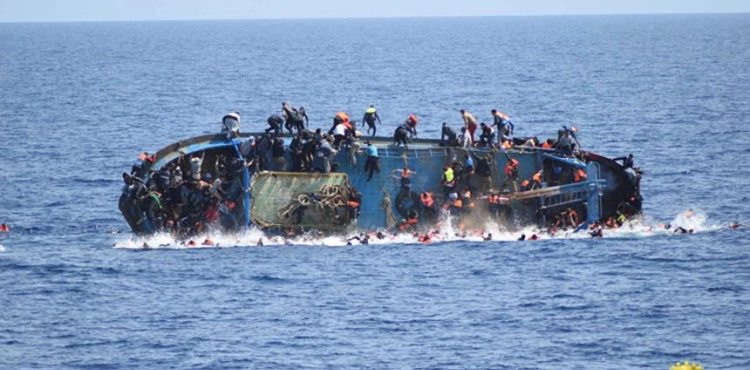The number of immigrants arriving in Europe in 2018 has fallen, but 2262 people have died to keep the Mediterranean sea the most dangerous sea route for them, the UN refugee agency said, calling on European countries to "break the deadlock" .
According to figures released by the UN High Commissioner for Refugees (UNHCR), a total of 2262 migrants "died or were considered missing" trying to cross the Mediterranean in 2018, compared with 3139 in 2017.
In terms of access, 11,342 people crossed the sea to reach the shores of Mediterranean countries in 2018, a significant decline from the previous year (172301).
To those figures, some 6,700 people registered in Spain´s coastal areas of Ceuta and Melilla have to be added but have not crossed into the sea. A total of 120,205 immigrants arrived last year in Europe.
The figures mean a sharp decline for the "peak" of 1.5 million migrants who arrived in 2015 amidst the refugee crisis. But the decline in mortality is less pronounced: 3,800 people died at the time.
However, the number of deaths rose slightly in 2018 compared to the previous year.
"The average has for years been the world´s most deadly sea of ​​migrants and refugees, with a high mortality rate," UNHCR spokeswoman Celine Schmidt told AFP.
"In 2019, it is necessary to get out of the current impasse and end the handling of the issues individually, ship by ship, to locate the landing of the rescued passengers," she said, calling for a "regional mechanism for the delivery of migrants."
The year 2018 was marked by a diplomatic crisis among European countries over the reception of refugees, especially after the Italian government, which adopts an anti-immigration speech, closed ports to ships transporting migrants this summer.
While the main route of migration has passed through Libya and Italy, Spain last year returned the first entry gate to Europe, with 55,756 people arriving by sea (compared to 22,103 in 2017).
This trend could continue because the Spanish Coast Guard announced on Wednesday that they had rescued 401 migrants during the first two days of 2019.
For its part, Italy recorded 23,371 arrivals, a significant decline for 2017 (119369) and Greece (32,497).
In 2018, Guinea was the first country of immigrants (13068), followed by Morocco (12745) and Mali (10347). Syria was only the fourth country where immigrants arrived, followed by Afghanistan and Iraq.
A large number of humanitarian vessels have been forced to wander the Mediterranean since the summer, because they do not know where to stop. Each problem has been resolved separately under an emergency agreement among European countries for the distribution of refugees.
At the beginning of 2019, two vessels of two German non-governmental organizations carrying 49 migrants got permission to stay in Maltese waters. The Netherlands said it was prepared to host a section of them, "provided that other European countries take the same step."
On Thursday, the European Commission called on EU countries to "increase solidarity" to share the migrants´ reception. A spokeswoman told reporters that the commission "contacted a number of member states to find a solution to the rapid displacement of these people."
"The Commissioner-General for Migration, Demetris Aframopoulos," calls on Member States to extend their support and contribution to this joint effort, "she said.
But the humanitarian vessels facing more obstacles are shrinking. At the beginning of December, Medecins Sans Frontieres (MSF) and SOS Medica were forced to end the operations of their ships, Aquarius.
Doctors Without Borders blamed European governments for the deaths on average "by supporting the Libyan Coast Guard to intercept people at sea."
Off the coast of Libya, a vast area has now been placed under the responsibility of the Libyan Coast Guard, who have always been criticized by NGOs for their level of training and equipment.
"We reiterate our appeal to the international community to address the root causes of displacement and the factors that force people to make increasingly dangerous trips," Schmidt said.












